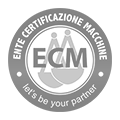With the increasingly close international trade, especially since the implementation of the "One Belt, One Road" strategic concept, the translation market has ushered in rapid development, and the language service objects have gradually spread to the general public. Among the many translation types, document translation is a careful and thorough process that goes beyond the basics, otherwise there is a high risk of errors in inaccurate or invalid translations. This is especially true for technical translation projects.
In some cultures, common translation mistakes can cause serious loss of face and damage a company's reputation and standing -- not to mention their bottom line. In technical industries such as medical or manufacturing, simple translation mistakes can be disastrous. Today, Artlangs Translation Company will share with you the common technical translation mistakes in the translation industry.
The first is literal translation, word-for-word translation. Technical translation work begins with an attempt at literal or verbatim translation. The technical term is called formal equivalence because it strictly follows the exact vocabulary of the source language. This is the most straightforward way to translate one language into another. Problems quickly arise when a word in the source language leads to a completely meaningless word in the target language. Technical accuracy does not always provide the best or expected meaning.
Also, medical abbreviations can and do mean different things in different languages. Medical translation is an example of technical translation, which must be accurate because any inaccuracy can have serious consequences. Entrusting a technical translation project to a non-professional or machine translation program is a serious mistake. Verbatim translations often mistranslate or completely ignore important parts of the text, especially when the technical language contains complex or industry-specific terminology.
The second is to ignore cultural differences. Common translation errors occur when "verbatim" translations do not adequately reflect cultural phrases and nuances. In this case, translators often use adaptation, that is, using other words or phrases in the target language to convey the meaning of the original text. To avoid potentially serious translation errors, translators must go beyond the literal meaning of words. Depending on the cultural context, it is very important to identify what a word means in a particular situation.
Although some claim that this method is very subjective, it is still considered a useful and necessary means of adapting the source language to the target language, especially for untranslatable words. When cultural differences create confusion, similar words or phrases are substituted to convey the correct meaning.
In the end, I don't understand the subject. Too many common translation mistakes are simply not having a working knowledge of the subject to be translated. This is especially true for technical translation projects. Industry-specific words or terms that cannot be accurately translated from one language to another must first understand the context in which they are used before choosing suitable replacement words or terms. Furthermore, choosing an unclear word in the target language that does not fit the context of use is a serious translation error.
While most translators may be able to translate words verbatim, translators with subject matter expertise have an understanding of what those words mean. This important qualification means that you can rely on an accurate technical translation that incorporates cultural differences, regional dialects and correct industry terminology. There is no substitute for years of training, education and experience in a specific technical field. Subject matter experts are proficient in the content and terminology used in technical translation because they have worked in the relevant industry.
—— Finish ——










